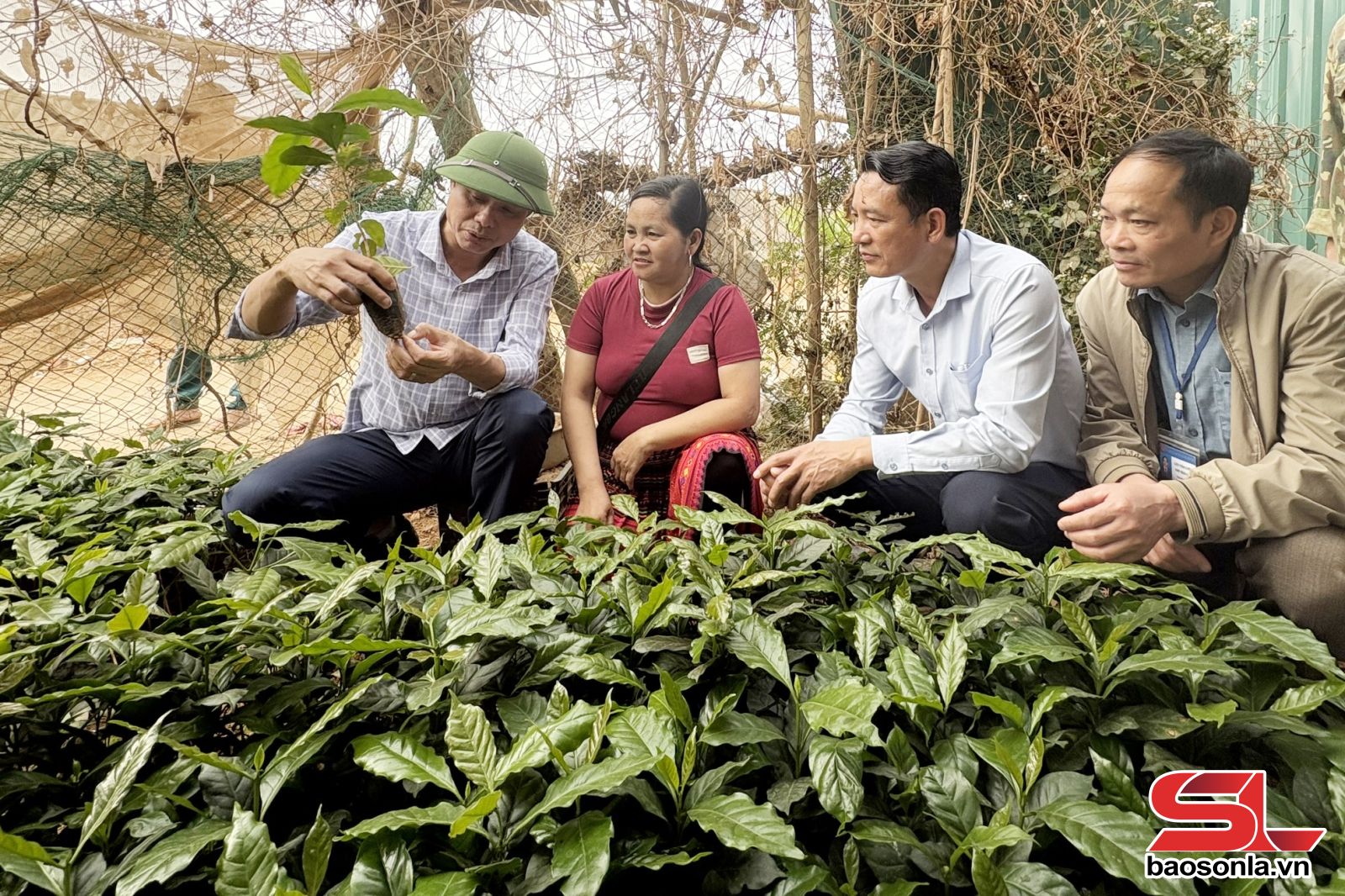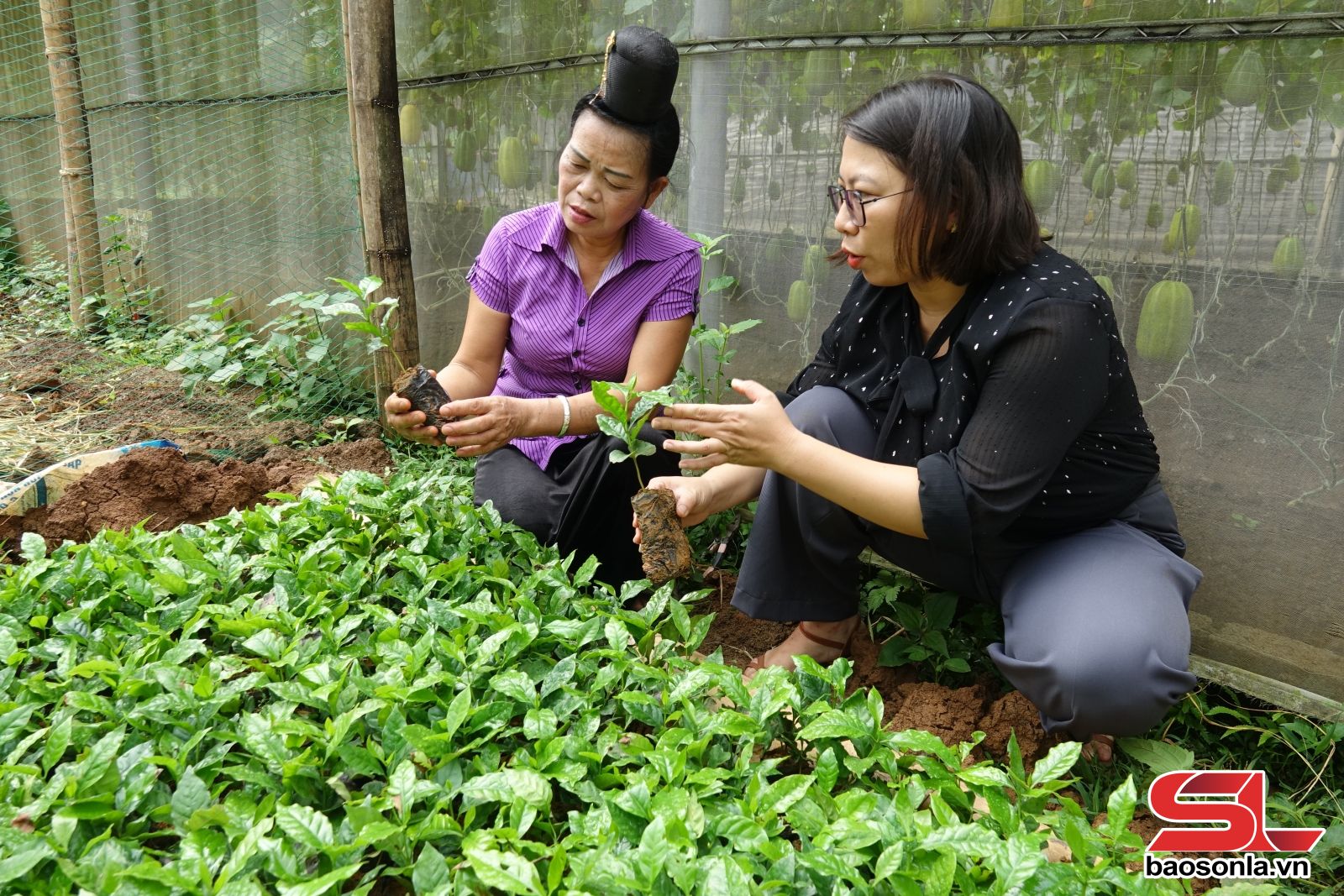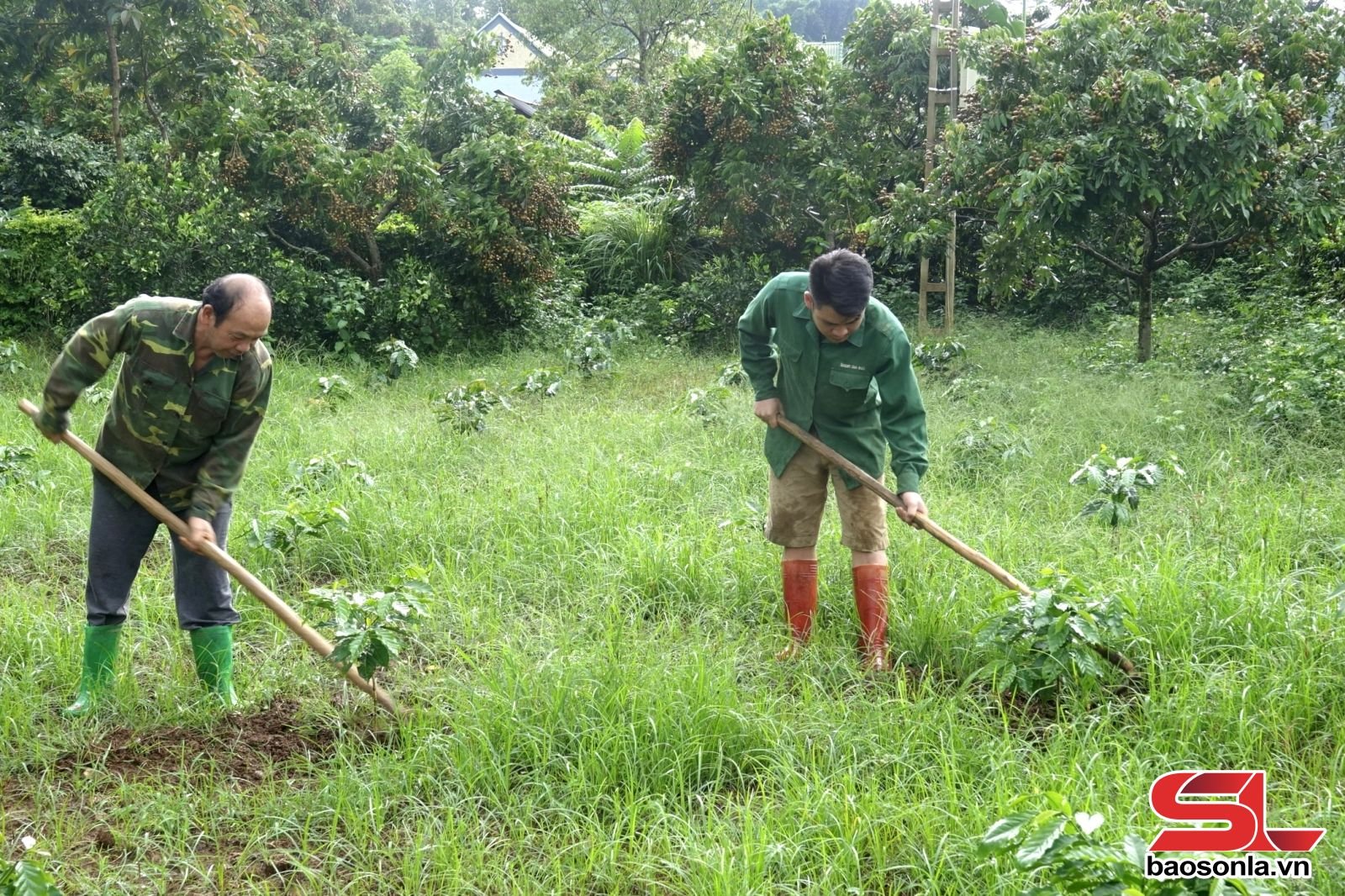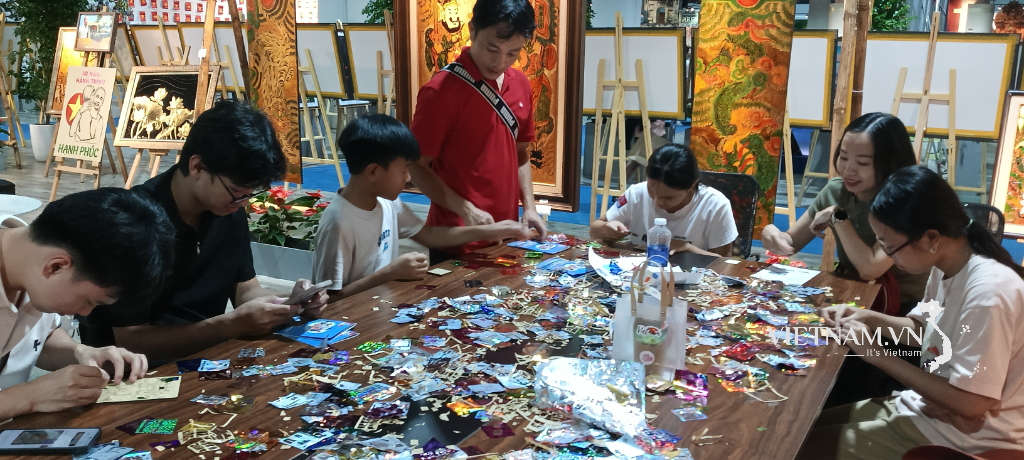
Arabica coffee has been grown in Son La province since the 1990s. Currently, the province has approximately 24,300 hectares of coffee plantations, with an estimated production of 37,724 tons in 2025. However, many areas are aging, resulting in reduced yields and requiring replanting or new planting. To meet the demand for coffee seedlings, research and seed production facilities in the province are proactively developing new varieties suitable for the local climate and soil conditions.
The Northwest Agricultural and Forestry Research and Development Center, located in Chieng Ban commune, Mai Son district, is one of the largest suppliers of coffee seedlings in the province. Besides the traditional method of sowing from mother plants, the Center is experimenting with propagation by cuttings, a promising new approach. Mr. Nguyen Quang Trung, Deputy Director of the Center, said: Coffee seedlings propagated by cuttings grow faster and bear fruit earlier than those sown from seeds, with yields nearly double after two years. Each year, the Center supplies approximately 900,000 high-quality seedlings and seeds to nurseries in the region, while also transferring technology and ensuring that satellite nurseries meet standards. Currently, the coffee seed market is highly competitive, and farmers are very concerned about origin, quality, and price. To provide seedlings with a high survival rate, good growth, and reasonable prices, our facility always imports mother plants from reputable sources with clear origins and recognized by competent authorities.
Besides state-owned enterprises, many cooperatives are actively supplying high-quality seedlings. A prime example is the Bich Thao Coffee Cooperative in Son La city, which supplies approximately 300,000 seedlings annually, not only to the local market but also to northern mountainous provinces such as Lao Cai, Yen Bai, and Lai Chau .
Mr. Nguyen Xuan Thao, Director of the Cooperative, said: The cooperative uses the THA1 variety from the Eakmart Seed Center, a variety suitable for the conditions of the Northwest region, yielding high productivity and quality. The nursery process lasts 6-7 months, and the seedlings meet the standards when they are at least 15 cm tall, with a base diameter of 0.3 mm, a straight stem, and are free from pests and diseases. Before being transplanted, the seedlings are acclimatized to sunlight to avoid growth shock.

Having purchased nearly 2,000 coffee seedlings from the Northwest Agricultural and Forestry Research and Development Center in preparation for the new planting season, Ms. Ca Thi Noi, from Bo village, Chieng An ward, City, shared: "In my opinion, high-quality seedlings help increase the survival rate, adapt to the climate and soil, shorten the growth time, and improve productivity. Even in the same area, using seedlings of clear origin and high quality yields superior results."
Ms. Pham Thi Lan, Deputy Head of the Crop Production and Plant Protection Sub-Department, Department of Agriculture and Environment, affirmed: Seed selection is the first but also the crucial step that directly determines productivity, adaptability, and consequently, enhances product value and farmers' income.
Currently, Son La province has established one TN2 coffee variety mother plant garden, yielding 10,500 shoots per year; and two Catimor SLa coffee variety gardens, providing 4,000 kg of seeds per year. In addition, 5,000 recognized Catimor SLa mother plants produce 7,650 kg of seeds per year. The Provincial Department of Crop Production and Plant Protection, in collaboration with GIZ (Germany), has also established a 2-hectare mother plant garden in Chieng Co commune, Son La city, with TN1 and TN2 varieties, which are popular due to their high yield and good quality. Two cooperatives in key areas, namely Quyet Thang Cooperative in Mai Son district and Thuan Son Cooperative in Thuan Chau district, have been supported in building nurseries with a capacity of 100,000 plants per year, creating a foundation for developing high-quality coffee varieties locally. Thanks to ensuring a good source of seeds, the entire province has replanted 1,203.7 hectares. 1,614.3 hectares were rehabilitated.

Our province aims to have approximately 25,000 hectares of coffee plantations by 2030, with an estimated production of 40,000 tons of green coffee beans. 80-90% of newly planted coffee areas will use standard varieties; there will be 5,950 hectares of specialty coffee; the development of sustainable coffee raw material areas will reach 18,000 hectares; and the formation and development of at least 5 high-tech coffee zones.
To achieve its objectives, the Department of Agriculture and Environment is implementing a comprehensive set of solutions, including disseminating legal information and providing technical guidance on coffee seed production. The entire area of coffee plantations ready for replanting is being reviewed and planned for each district. Simultaneously, coordination with local authorities is underway to strictly control seed sources, ensuring clear origins and quality standards. Production is also being oriented towards environmental friendliness, meeting international standards, particularly the regulations of the European market regarding forest protection.
Coffee is not only the main crop of Son La province, but also the livelihood of tens of thousands of farming households. Strict management of coffee varieties from research and production to use is the foundation for improving productivity and quality. This, in turn, expands the market and gradually elevates the Son La coffee brand on the map of Vietnamese and international agricultural products.
Source: https://baosonla.vn/kinh-te/quan-ly-chat-luong-giong-cay-ca-phe-HyqgVHENR.html










































































































Comment (0)